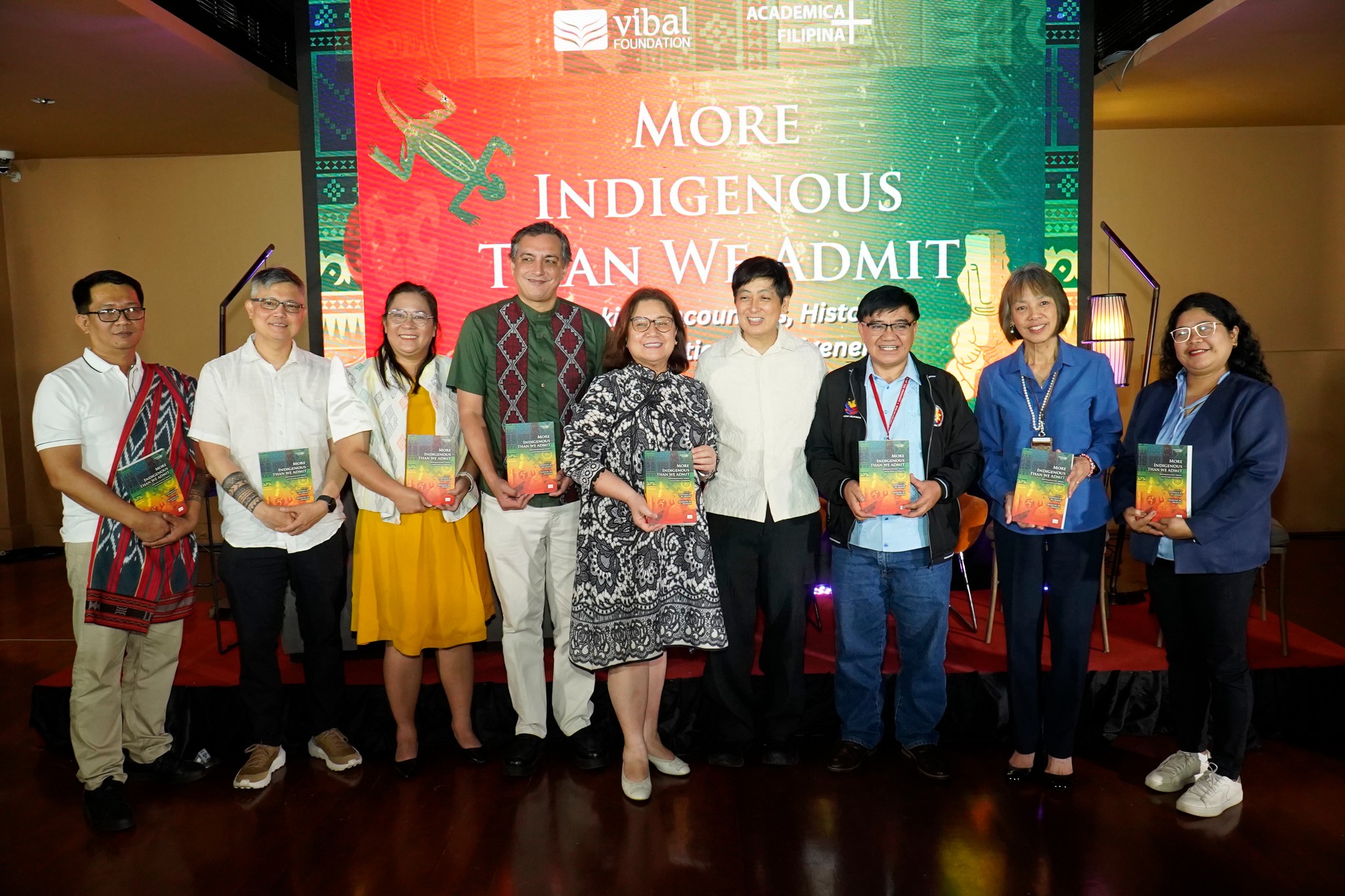
A critical compilation reclaims, redefines, and celebrates Indigenous identities in the Philippines
June 18, 2025
MANILA, Philippines (June 18, 2025)—Vibal Foundation, through its Academica Filipina+ imprint, proudly announces the launch of More Indigenous Than We Admit: Rethinking Encounters, Histories, and the Politics of Indigeneity—a groundbreaking collection of essays compiled and edited by esteemed scholars Stephen B. Acabado, PhD. and Marlon M. Martin.
The launch, to be staged at the San Miguel Corporation Exhibition Hall of the National Museum of Anthropology in Ermita, Manila, will feature discussions by the editors and contributors as well as the publishing team behind the book, which critically examines and reclaims Indigenous identities as they challenge colonial, legal, and academic constructs that have long marginalized Indigenous peoples across the Philippines and Taiwan.
Composed of 18 essays divided into four thematic chapters, the volume powerfully asserts that Indigenous identity is living, evolving, and self-defined. More Indigenous Than We Admit: Rethinking Encounters, Histories, and the Politics of Indigeneity dismantles exclusionary migration models, critiques colonial and legal erasures, and champions Indigenous languages, cultural practices, and ecological knowledge as essential to contemporary society. Drawing from oral histories, ethnographic studies, and Indigenous scholarship, the book prioritizes the voices, agency, and lived experiences of Indigenous communities.
Book highlights
Part 1, “Rethinking Indigeneity: Colonial Constructs, Law, and Identity,” features the essays by Stephen B. Acabado, Karminn C. D. Daytec Yañgot, Evelyn Saquing-Dunuan, Maica Mae D. Lapuz and Augusto B. Gatmaytan; and Mark Francis Francisco.
Their essays explore how colonial histories, legal systems, and rigid classifications have shaped, constrained, and often erased Indigenous identities in the Philippines. The book also suggests a rethinking of the rigid colonial labels and legal frameworks, affirming Indigenous peoples’ right to self-definition.
Part 2 focuses on “Questioning the Austronesian Model and the Myth of Migration.” It includes the essays by John Peterson, John Edward Terrell, Almudi G. Lukman, Abdulhamit Durakoglu, and Welfhe Lukman; and João Paulo Doblon Reginaldo.
The authors’ essays challenge the dominant “out-of-Taiwan” Austronesian migration theory, which has long shaped how indigenous identities and histories in the Philippines are understood. It highlights Indigenous genealogies and oral traditions that offer complex, place-based understandings of identity.
Part 3 meanwhile is about “Language, Education, and Cultural Representation,” comprised of the essays by Raymond Aquino Macapagal and Fernando Dumar Mannod Jr.; Fernigil L. Colicol, Raymundo D. Rovillos, and Verna Liza D. Bautista; Jimmy Balud Fong, and Analyn Salvador-Amores.
The articles here explore how language, education, and cultural representation impact indigenous identities and advocacy in the Philippines. The book asserts that indigenous education should not merely accommodate indigenous cultures but must also actively center and empower them. Through the promotion of language revitalization, community-led education, and the dismantling of colonial biases, indigenous knowledge systems can be ensured to thrive within and beyond formal educational spaces.
The last section is on “Indigenous Landscapes, Food, and Material Culture,” with the chapters written by Florence L. Zapico, Madeleine Yakal, Randy M. Madrid, and Amiel Jay V. Lopez. This part explores how indigenous knowledge, cultural practices, and material traditions contribute to climate resilience, cultural identity, and community empowerment. The essays powerfully advocate for the recognition, protection, and celebration of indigenous landscapes, cultural practices, and knowledge systems. It challenges dominant narratives and highlights indigenous agency in shaping sustainable and inclusive futures.
RELATED CONTENT
- NMP hosts launch of ‘More Indigenous Than We Admit’
- Book on PH indigenous communities launched
- Libro hinggil sa mga paniniwala at kuwento ng mga katutubo, inilunsad
- Vibal’s More Indigenous Than We Admit book launch